Taro Aso: The Rise of a Power Broker in the LDP
And his similarities to ultranationalist right wing fixer and gangster Yoshio Kodama
I am someone who has long been fascinated by Yoshio Kodama and you can check my Substack “Who was Yoshio Kodama?” for more about this notorious right-wing fixer who exerted immense influence over post-war Japanese politics, I can’t help but see parallels between Kodama and the “Kingmaker” of the Liberal Democratic Party (LDP), Taro Aso.
Although Aso operates in a more legitimate political sphere, and Kodama was far more deeply entrenched in the criminal underworld, both figures ascended to power through their networks, behind-the-scenes influence, and mastery of Japan’s complex political machinery. Aso's rise in the Liberal Democratic Party (LDP), like Kodama’s influence in his time, is a testament to the potency of personal connections, factional allegiances, and strategic maneuvering.
How did Taro Aso climb to the pinnacle of power in the LDP and became one of its most enduring kingpins?
Much like current Digital Minister Taro Kono (pictured below), who attended the screening of my documentary “The Ones Left Behind: The Plight of Single Mothers in Japan” and gave a speech after, Aso’s rise in politics was, in many ways, preordained by his family background.
Aso was born in 1940 to a family of political elites and is part of Japan’s political aristocracy. His grandfather was Shigeru Yoshida, one of Japan’s most influential and somewhat legendary post-war prime ministers, serving through most of the American occupation following World War II. He played a significant part in determining the course for post-war Japan by forging a strong relationship with the United States and pursuing economic recovery. He was also quite close to Yoshio Kodama.
Additionally, Aso’s great-grandfather, Takakichi Aso, was a wealthy coal magnate and his dad was the chairman of Aso Cement Co. and the Aso Mining Company, providing the family with a remarkable fortune. Aso’s social status elevated was even further when his younger sister married into the Imperial Family, becoming Princess Tomohito of Mikasa, the cousin-in-law of Emperor Akihito.
Aso’s wife, Chikako Aso, is the daughter of another former prime minister, Zenko Suzuki. These connections provided Aso with the prestige and network needed to enter the political arena with a strong foundation—somewhat similar to how Kodama’s early connections gave him the power to influence.
Before entering politics, Aso had a varied career. He studied at Gakushuin University, followed by brief stints in the United States at Stanford University and in the UK at the London School of Economics. Afterward, he returned to Japan and worked in the family business, Aso Mining Company, before venturing into politics.
Aso officially entered politics in 1979, securing a seat in the House of Representatives. His early career was marked by a sharp focus on national defense and foreign affairs, two areas that would remain central to his political ideology. His fluency in English and experience abroad made him a valuable figure in Japan’s international relations.
Much like Kodama, Aso built his career by fostering key relationships and positioning himself as a defender of traditional values and national interests.
Aso’s ministerial career was a key part of his ascent. He held several important portfolios in the LDP-led government, including serving as Minister of Foreign Affairs from 2005 to 2007 under Prime Minister Junichiro Koizumi. His tenure as foreign minister cemented his reputation as a tough, outspoken leader, particularly noted for his firm stance on national security issues and his vision of Japan playing a more assertive role on the global stage.
In the LDP, Aso was known for his hawkish views on foreign policy and his staunch defense of conservative values, earning him a strong following among the party’s right-wing factions. In a way, his influence on party policy mirrors Kodama’s sway over political direction, though Aso worked within the legal framework of government while Kodama operated outside of it.
Aso’s most prominent role came when he ascended to the prime ministership in 2008. However, his time in office was short-lived. Aso took over during a difficult period—Japan was grappling with the aftermath of the global financial crisis, and the LDP was already losing favor with the public. Despite his leadership, the LDP suffered a crushing defeat in the 2009 general election, leading to the Democratic Party of Japan (DPJ) taking power.
Although his tenure as prime minister ended abruptly, Aso’s defeat did not diminish his influence within the LDP. Instead, much like Kodama in the shadows, he leveraged his networks and alliances to entrench himself as a behind-the-scenes power broker.
Aso’s political resilience became evident after the LDP regained power in 2012 under Shinzo Abe. Aso was appointed Deputy Prime Minister and Minister of Finance, positions he held for an unprecedented nine years until 2021. His role as finance minister gave him immense control over Japan’s economic policy, solidifying his influence within the government and the LDP.
As Finance Minister, Aso oversaw policies related to fiscal stimulus, Japan’s debt management, and international financial diplomacy. His long tenure in this role is a testament to the trust and authority he commanded within the party, and his control over economic policy made him indispensable in shaping the “Abenomics” agenda. His ability to wield significant influence while remaining just outside the spotlight—much like Kodama’s role in shaping political events—kept him firmly in control.
Factional Leader and Kingmaker
Taro Aso’s rise to power was also due to his leadership of the Aso faction, one of the most powerful factions within the LDP. Factions in the LDP are pivotal in determining party leadership, cabinet positions, and policy directions. Aso's ability to command loyalty within his faction gave him considerable leverage in leadership contests and negotiations. The Aso faction, which he led for over two decades, became one of the largest and most influential groups in the party.
Much like Kodama’s ability to pull the strings from behind the scenes, Aso’s leadership of his faction gave him significant sway over LDP decision-making, allowing him to act as a kingmaker in determining party leadership and Japan’s prime ministers. He will indeed decide the next Prime Minister if Japan, decided by rock-paper-scissors with former Prime Minister Yoshihide Suga.
Taro Aso, despite his long and prominent political career, has not been entirely free from controversy and scandal.
One of the more infamous moments in Aso’s career occurred in 2013, when he made comments referencing Nazi Germany in a speech on constitutional reform. Aso suggested that Japan should learn from how the Nazis “quietly” revised the Weimar Constitution before anyone realized it. The statement was widely condemned both domestically and internationally, as it seemed to trivialize the dangers of undemocratic governance and the Nazi regime.
Aso later claimed his remarks had been taken out of context, and he retracted the statement, but the damage was done. It sparked considerable debate and outrage, particularly because it fed into concerns over right-wing nationalism in Japan.
In 2013, Aso also stirred controversy with a rather blunt and insensitive remark about Japan’s aging population. As part of a discussion on healthcare and social welfare, Aso was quoted as saying that elderly people who are in need of costly end-of-life care should “hurry up and die” to reduce the burden on the public healthcare system.
This comment caused widespread criticism, especially considering Japan's rapidly aging population and the challenges it presents. Aso tried to walk back the comment, suggesting he was speaking personally and not in a policy context, but it nevertheless left a lasting impression of insensitivity.
While not directly implicated, Aso was linked to the Moritomo Gakuen scandal, which erupted in 2017. The scandal involved the sale of public land to a private school operator at a highly discounted rate, and the school was known for its ultra-nationalist curriculum. Prime Minister Shinzo Abe and his wife, Akie Abe, were embroiled in the controversy due to their connections with the school.
Aso, as Minister of Finance, faced criticism for his ministry’s role in the sale of the land. The Ministry of Finance had tampered with documents related to the land sale, altering them to remove references to Akie Abe and the prime minister's involvement. Although Aso did not personally alter the documents, he was under fire for the ministry’s actions and resisted calls to resign, leading to a cloud of suspicion over his role.
Aso’s nationalist views and revisionist remarks on Japan’s wartime past have also caused controversy over the years. He has downplayed Japan’s war crimes during World War II, particularly concerning issues like comfort women and the Nanjing Massacre, which often put him at odds with neighboring countries such as China and South Korea.
His revisionist stance fits into a broader trend of conservative Japanese politicians who seek to whitewash or downplay Japan’s wartime actions. While this has played well with certain nationalist segments within Japan, it has caused considerable diplomatic friction and angered progressive groups within the country.
Another scandal that has dogged Aso concerns his family’s business, Aso Mining, which was involved in the use of forced labor during World War II. Korean and Chinese laborers were forced to work in the company’s mines under harsh conditions. This part of Aso’s family history resurfaced during his political career, especially as he gained prominence.
Aso has been criticized on several occasions for making offhand remarks that reflect a dismissive attitude toward women. In 2021, he reportedly made a comment about the difficulty of dealing with female members of parliament, suggesting that it was easier to work with men. These types of comments contribute to the perception that Aso holds conservative views about gender roles, and they haven't helped in improving his standing with women voters or progressive groups.
Taro Aso’s rise to power in the LDP, while more legitimate and public than Yoshio Kodama’s, bears notable similarities in terms of the strategic use of networks, factional strength, and behind-the-scenes influence. They are both the Kingpins in their respective eras and both mastered the art of political survival and influence. Aso’s ability to remain a central figure in Japanese politics for over four decades, despite setbacks, is a testament to his skill in maneuvering within the system, much like Kodama, who influenced Japanese politics from the fringes of legality.
Even after stepping down from key ministerial roles in 2021, Aso’s legacy as a power broker in the LDP endures. His influence continues, especially as a senior figure whose opinion carries considerable weight in a party where factional politics still plays a critical role.
Rionne McAvoy is the director of the award-winning documentary The One's Left Behind: The Plight of Single Mothers in Japan, showcasing his dedication to addressing pressing social issues. A committed documentary filmmaker and professional wrestler, he explores critical themes with passion and insight. Additionally, he has a keen interest in post-World War II Japan, particularly the intricate connections between politicians and gangsters during that era. Known in the wrestling ring as Rionne Fujiwara, he brings the same determination and storytelling prowess from his wrestling persona to his filmmaking endeavors.

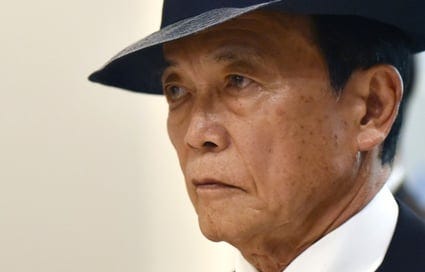


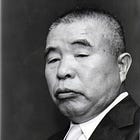

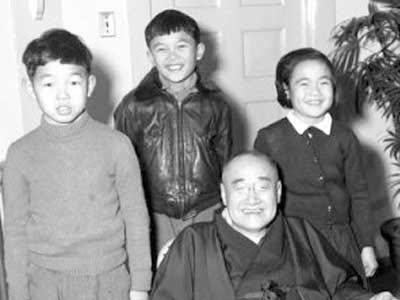

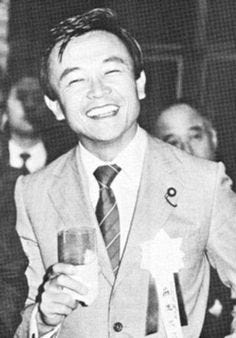

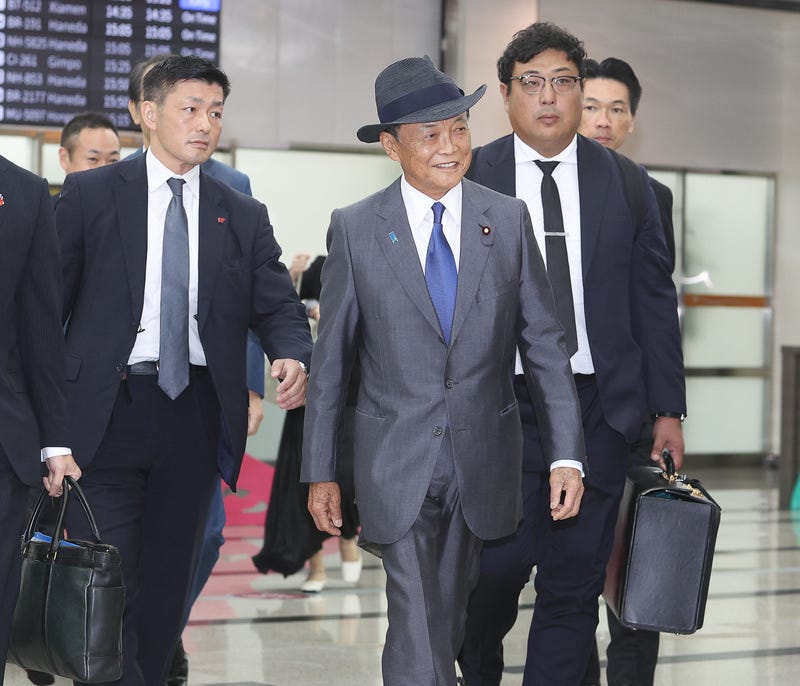


There is a Reiwa-era fixer who continues the tradition of Yoshio Kodama, but he is not Taro Aso.
Do your research, and you will find his name. His story is almost as interesting as Kodama's tale. Maybe more so, since this guy has no military ties unlike Kodama. Kodama plundered Manchuria on behalf of the Imperial Japanese Navy, while the Reiwa fixer has different angles on the money.
Intriguing history there.